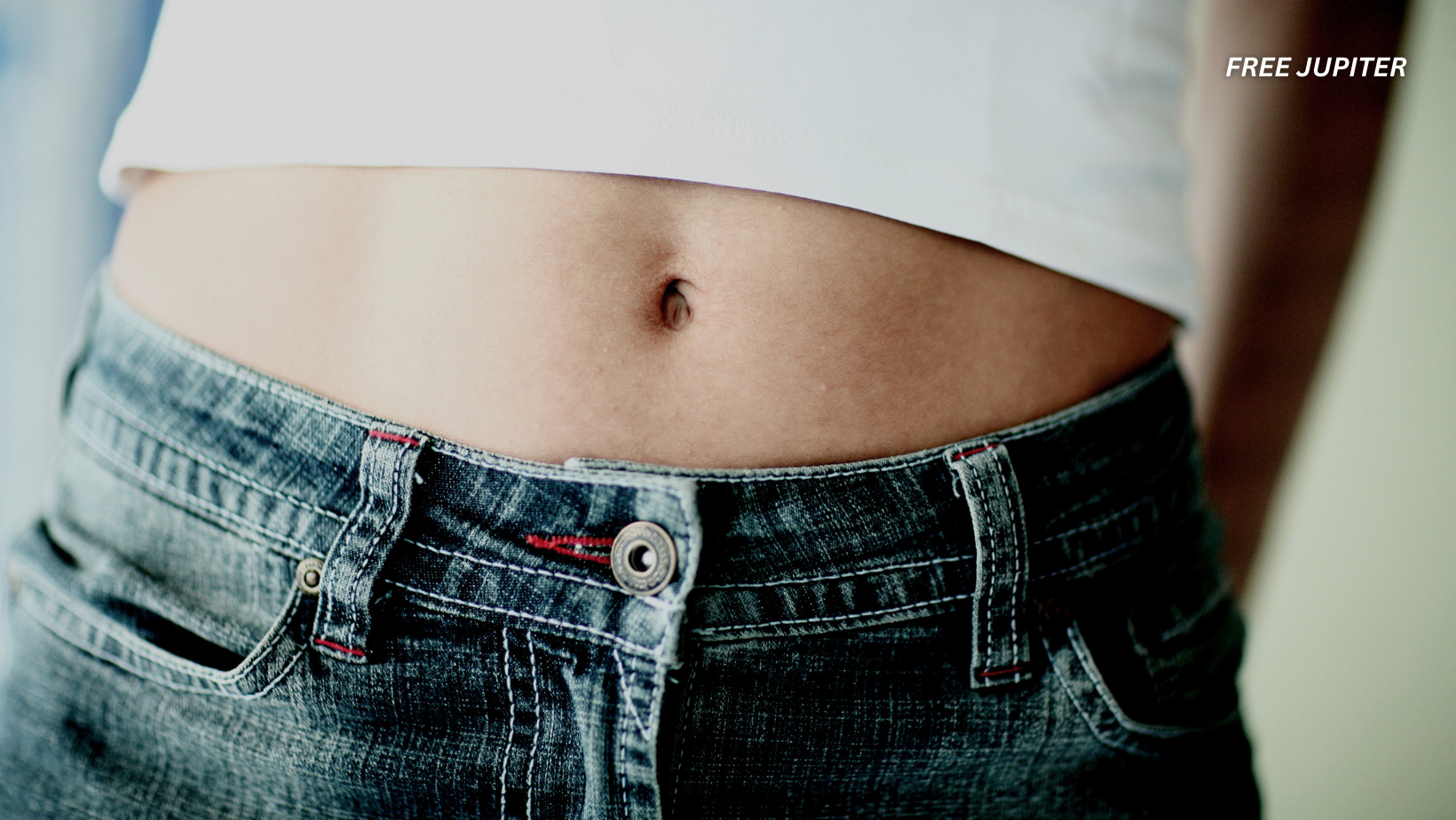For many people, taking a shower is more than just a daily necessity—it’s a ritual of relaxation and renewal. Some transform it into an indulgent, spa-like experience, complete with scented body washes, exfoliating scrubs, and luxurious shampoos. Others treat it as a quick, no-fuss task: hop in, soap up, rinse, and move on.
Whatever your shower style may be, there’s one important truth that unites everyone: we all tend to overlook one particular body part that quietly accumulates dirt, bacteria, and sweat. Dermatologists have been speaking up about it, and what they’re saying might surprise you—it’s your belly button.
Yes, that tiny, often-ignored indentation (or bump) in the middle of your abdomen actually requires more care than most people realize. According to experts, this neglected little spot can become a breeding ground for bacteria if it’s not cleaned regularly.
Read more: It’s Official: Science Says Listening to Metal Is Actually Good for You
The Forgotten Crevice We All Overlook
The belly button, also known as the navel, is a natural scar left behind after the umbilical cord is cut at birth. Most people don’t give it much thought once they’ve grown up, yet it quietly collects all sorts of microscopic debris over time.
Dr. Geeta Yadav, MD, a board-certified dermatologist and founder of FACET Dermatology, explained that the belly button is one of the most commonly forgotten areas when it comes to hygiene. “Belly buttons—especially the ‘innie’ kind—are dark, moist, and often ignored when cleaning. That’s the perfect recipe for bacteria to thrive,” she says.
The combination of sweat, body oils (known as sebum), dead skin cells, and lint from clothing creates an ideal environment for microorganisms to multiply. And because the area tends to stay warm and closed off, it can hold moisture for long periods—basically giving bacteria everything they need to feel at home.
The Science Behind the Build-Up
While most people shower regularly, very few make a conscious effort to clean their belly button. Over time, this neglect leads to the accumulation of grime that can result in odor, irritation, or even infection.
In one scientific study, researchers analyzed belly buttons from a group of volunteers and found an astonishing 67 different types of bacteria living there. Some of these bacteria are completely harmless and part of your skin’s natural ecosystem, while others are less friendly and can cause inflammation or unpleasant smells.
“Bacteria are part of everyday life,” Dr. Yadav explains. “They live on our skin, in our homes, and on the clothes we wear. Activities like working out, sweating, rewearing gym clothes, or even sleeping on used sheets can introduce new bacteria to your skin—and your belly button is no exception.”
The study also revealed that people with more bacterial buildup had stronger odors coming from the area. In short, the dirtier the belly button, the worse it smells. A healthy belly button, according to dermatologists, shouldn’t have any noticeable scent.
When Neglect Goes Too Far: The Case of Navel Stones
For those who have truly forgotten their belly button for years, dermatologists warn that it can lead to an unusual condition known as an umbolith or navel stone.
Umboliths are small, hard lumps made up of old sebum, dead skin, hair, and other debris that have compacted over time. They resemble blackheads or small stones and are more likely to form in people with deeper navels.
“They’re not very common, but when they do form, they can be uncomfortable or even painful,” Dr. Yadav explains. “If left untreated, they can irritate the skin and occasionally cause infection.”
In some cases, people don’t even realize they have one until it becomes sore or emits an unpleasant odor. Removal typically requires a medical professional, as attempting to dig it out yourself can cause further irritation or injury.
Read more: The Science Behind Resilience: How the Brain Rewires After A Setback
How to Properly Clean Your Belly Button
Fortunately, preventing these problems doesn’t require fancy products or complicated steps. All it takes is a bit of consistency and attention during your normal bathing routine.
Dr. Yadav recommends cleaning your belly button every time you shower. “Use a mild body wash and your finger to gently clean inside. Just swirl it around, rinse well with warm water, and make sure it’s completely dry afterward,” she says.
If you want to go a step further, you can use a soft washcloth or cotton swab to help remove stubborn residue. Some people like to dip the swab in a small amount of gentle chemical exfoliant, such as one containing glycolic or lactic acid, to help dissolve buildup and prevent odor. However, this should only be done occasionally and with care—too much exfoliation can cause irritation.
For “outies,” cleaning is usually simpler. A quick wash with soap and water on the surface is enough. “Innies” just need a little more attention due to their depth and tendency to trap moisture.
Drying Is Just as Important as Washing
After washing, drying the area thoroughly is key. A damp belly button can remain moist for hours, encouraging bacteria to grow again. Pat it gently with a towel or use a clean cotton swab to ensure it’s completely dry.
Avoid applying lotions or heavy creams inside the navel, as these can clog the area and trap more dirt. If your belly button feels dry or irritated, a tiny dab of fragrance-free moisturizer around—not inside—it is fine.
When to See a Doctor
If your belly button starts to feel itchy, red, swollen, or emits a strange smell even after cleaning, it could be a sign of an infection. Some infections are caused by yeast or bacteria, and both can be treated with the right medical care.
“Persistent odor, pain, or discharge shouldn’t be ignored,” Dr. Yadav warns. “Those are signs that something more serious may be happening beneath the surface.”
A dermatologist can easily diagnose the issue and provide treatment, which might include topical creams or mild antibiotics.
Why Small Hygiene Habits Matter
It might seem silly to think about your belly button as part of your self-care routine, but small hygiene habits often make the biggest difference in maintaining good health. Think about it: you wouldn’t skip brushing your teeth or washing behind your ears, right? The same principle applies here.
The belly button might not be visible most of the time, but neglecting it can lead to avoidable discomforts like itching, odor, or infections. Giving it a few seconds of care each day helps keep your skin balanced and healthy.
Common Myths About Belly Button Cleaning
There’s a popular belief that the belly button doesn’t need cleaning because it’s a “closed” area—but that’s far from true. Even though it’s a small space, it collects sweat, oil, and fabric particles daily.
Another myth is that cleaning it too often will irritate it. In reality, gentle cleaning once a day or every other day is perfectly safe. The key is not to scrub aggressively or use products that contain alcohol or strong fragrances.
Some people also think that using hydrogen peroxide is the best way to disinfect it. While that might work for occasional deep cleans, it’s not necessary for daily care and can dry out the skin if used too often.
Read more: Want to Wake Up Happier? Try These 6 Evening Habits, According to Science
The Bottom Line: Give Your Navel a Little Love
The belly button might be small, but it deserves its own moment in your hygiene routine. It’s easy to forget, hidden from sight and seemingly unimportant—but taking care of it can prevent odors, discomfort, and possible infections down the line.
As Dr. Yadav points out, “It only takes a few seconds, but those few seconds make all the difference. Your belly button should feel clean, dry, and odor-free—just like the rest of your body.”
So next time you step into the shower, take an extra moment to show your navel some attention. It’s a simple act of care for one of the most overlooked parts of your body—a reminder that even the smallest details in self-care matter.
Featured image: Freepik.
Friendly Note: FreeJupiter.com shares general information for curious minds. Please fact-check all claims and double-check health info with a qualified professional. 🌱










